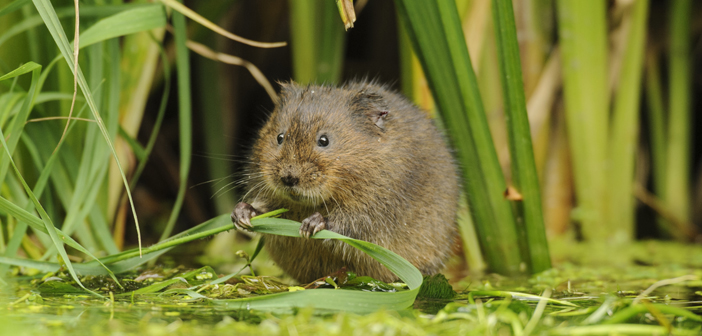THE future of the water vole in Cheshire is “hanging in the balance” – and building the HS2 railway line could result in its extinction in the county.
This was the warning sounded by the Cheshire Wildlife Trust when they appeared before the House of Commons HS2 Select Committee.
The Trust were there to voice their concerns over changes to the HS2 Phase 2a scheme – the line south of Crewe.
Their evidence and planning manager, Rachel Giles, presented the Trust case to the committee, and HS2 were invited to respond. This was followed by cross examination by committee members.
Rachel said: ‘’Our case was based on the fact that the changes in AP2 result in further substantial losses of wildlife-rich habitat but no new replacement habitat is being proposed. We think this is unacceptable.
“Particularly worrying is that the amended scheme will result in the loss of 1345 metres of water vole habitat which is home to an important population. The water course will also be permanently blocked by an inverted siphon which effectively acts like a big U-bend preventing the passage of water voles and other wildlife.’’
Water voles are the fastest disappearing mammal in the UK and are legally protected. They were once common and widespread throughout Cheshire, but a new study by Andrea Powell from Cheshire Wildlife Trust has concluded that the future of this species in Cheshire is currently hanging in the balance.
She said: ‘’We fear that the population impacted by HS2 will not recover, putting the survival of water voles in this part of the county at imminent threat of extinction. We simply can’t afford to lose any more water voles from Cheshire.’’
HS2 have argued that water voles will recolonise this area once the scheme is complete. But the Trust point out that the rapid recent population declines indicate that this simply won’t happen as populations are contracting not expanding.
HS2 have the opportunity to help this situation by creating habitat for water voles next to the track. The Trust say new water vole habitat would need to be created next to existing areas to provide a refuge for the species during the construction process. Once work was complete the population could then expand back into their old habitat. The end result would be a net gain in habitat which could make the difference between survival or extinction of the species in south Cheshire.
The Trust is currently developing a water vole recovery strategy and have invited HS2 to help them with this.
They say bolstering the population south of Crewe would be a major contribution to their plan to stabilise the water vole population in Cheshire.
“We are waiting to see if HS2 are willing to take us up on the offer, or if indeed the Select Committee will require them to do more to save this population.’’
Future of water vole in Cheshire “hanging in the balance” – thanks to HS2
11 Comments
Share.





1 Comment
I remember taking part in the C W T watered vole survey